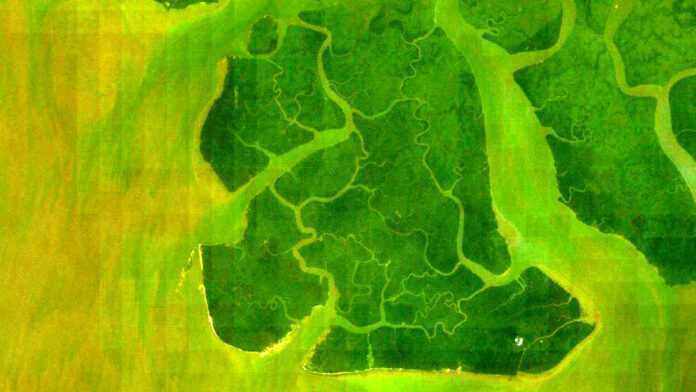
Nigeria Monday handed over the minerals-rich Bakassi Peninsula to its southeastern neighbour Cameroon, marking the final stage of its compliance with the International Court of Justice ruling of 2002 giving the disputed territory to Cameroon.
At noon, under a heavy rain, Nigeria’s national flag was lowered for the last time in Archibong town in the disputed Bakassi Peninsula, ending the country’s occupation of the area.
At the same time, the military’s flag was lowered from its hoist, terminating its presence from the Peninsula, which it has occupied since 1975.
The Cameroonian flag was hoisted by a detachment of the country’s armed forces, led by Col. Eyong Tammpong Ebot, changing Archibong, Cross River State, to Archibong, South West Cameroon.
The formal handover was carried out with a formal signing of the handover document by Bayo Ojo, Nigeria’s Attorney General and Minister of Justice, his Cameroonian counterpart, Maurice Kamto and the chairman of the United Nations Follow-up Implementation Committee, Keira Pendragast.
In a short speech, Ojo said: « Nigeria is yielding land in order to give way to peace. We give land in order to give room for lives. We know that lives are precious and irreplaceable. We realise that the only alternative to peace is war and the attendant destruction of lives and property. »
He added: « The cost of war is certainly higher than the pains of peace. War leaves indelible scars of untold suffering, separation and hardship. Peace, though painful in the short run, often blossoms into the pleasure of blissful harmony over time. »
Ojo said Nigeria was resolved to prevent the dispute over Bakassi from developing into war, adding: « We would not sacrifice the lives of our people in order to retain artificial borders, which we realise, is becoming increasingly irrelevant in the rest of the world. »
He said the resolution « preserves our African brotherhood » and that it is evident of a new Africa where people could resolve disputes without resorting to war.
To the sad residents of Bakassi, who initially resisted the handover, the Minister told them the handover « does not mean an end in itself », and implored them to choose to either remain in the area, relocate to another area within the zone to be administered by Nigeria or take advantage of the new resettlement provided by Nigeria.
Whichever choice they make, he said, the federal government will always support and protect their interests.
Pendragast said both Nigeria and Cameroon had shown enough generosity of spirit, patience, good diplomacy and firm attachment to international rule of law.
Therefore, they « are both winners » in completing the handover.
« It is a very good day for both countries and the international community. An example has been set for others to follow. This is going to be studied a lot by diplomatic historians and people interested in settling issues through peaceful means, » the UN representative said.
Cameroonian Armed Forces spokesman, Lt.Col. Adeck Moise, said: « This is a historic day. Nigerians have nothing to fear. We have all learnt our lessons. The situation will be different from what it used to be. We are going to send a new team (of gendarmes) with new orientation. It is going to be different. We are all brothers. »
Under the Green Tree Agreement signed 12 June between Presidents Olusegun Obasanjo and Paul Biya in the presence of United Nations Secretary General Kofi Annan in New York, Cameroon is to take immediate sovereignty of most of the Peninsula, especially the northern and central parts.
Two areas – West Atabong and Akwabana — are to remain under Nigeria’s direct governance for two years, a period that will enable the locals to determine if they want to remain in the territory or get relocated in the mainland Nigeria.
The ceremonies were witnessed by Cross River State Governor Donald Duke and his Akwa Ibom state counterpart, Obong Victor Attah.




